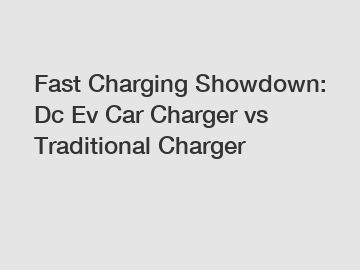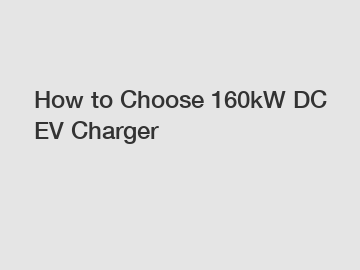How long can a generator run continuously?
On average, a standby generator can run for up to 3,000 hours powering a medium-sized home, though it is recommended you do not run a generator for longer than 500 hours continuously.
Two factors affect the amount of time a whole house generator can continue to run:
- Generator type
- Fuel source
Every generator is different – some are designed to run for days at a time, while others are built to run for only hours at a time. In this article, we’ll explore how fuel and type can affect run time.
Generator types.
The main types of generators are standby and portable generators. These types of generators are designed to help you keep lights on during a power outage, however not all generators can be left running for days at a time.
How long can a standby generator run?
A standby generator is a stationary electricity source designed to provide power to residential or commercial buildings for up to several days depending on its size, fuel source, and brand. Unlike emergency short-term generators, standby generators are made specifically for use in longer-span emergency situations. Standby generators come in various sizes and types.
At its best, this kind of generator can run for up to 3,000 hours powering a medium-sized home.
So, if you average 3 blackouts a year and use your generator for about 30 hours per blackout and add the time you run it for maintenance, your generator could last up to 50 years.
How long can portable generators run?
Portable generators can run up to 2,000 total hours. Unlike standby generators, portable generators are designed to run for shorter increments of time – typically about 6-18 hours. These machines will come in handy for RVs on camping trips or to power certain home appliances in an emergency but are not recommended for use during long-term power outages.
Fuel sources affect generator run times.
Theoretically, a generator can continue running as long as it has fuel to do so. However, some fuels might be more difficult to obtain a continuous supply of during a natural disaster or other emergencies. In essence, you can keep your generator running as long as you have access to the fuel needed to run it.
Generators run on the following fuel sources:
- Propane is the most common source of fuel for generators. Among the fuel sources available, propane has the longest shelf life, so you won’t have to worry about the supply in the generator losing its potency over time.
- Natural gas generators connect directly to your gas line, so there is no need for a fuel tank, and the device can run continuously if gas lines are operating. During natural disasters, however, these are often impractical, as gas lines are the first to be shut off due to risk of fires or other hazards.
- Diesel generators can be resourceful, although the amount of diesel is limited to the amount you can access and store in a tank and diesel gas can be prohibitively expensive.
Looking to buy a generator?
Choosing the right generator can be difficult. When comparing portable vs standby generators you might wonder if it’s worth the expense to invest in a standby generator rather than a portable one. Our team of generator experts have all the skills and experience necessary to help you choose the right generator for you and your home.
Contact Petro Home Services for a free consultation today!
Electricity is a necessity. When a power outage occurs, we realize all the little ways electricity makes an impact on our day-to-day lives.. Installing a whole-home backup generator gives you the ability to keep the power on if an extended outage occurs for any reason.
When you need it the most, a backup generator allows you to continue your daily life as close to normal as possible. A generator will prevent your food from spoiling, will enable you to turn on the heat in the winter, and run ovens and stovetops to cook food throughout the day.
Suggested reading:Energy
Energy storage - IEA
What is the chain selection process?
How do I choose a conveyor chain?
Where does electricity come from? | The journey of ...
How much is a battery backup system vs generator?
Battery Backup vs. Generator: How to Choose | Get the Facts
While most families can live with the power being off a few hours at a time with minimal issues, imagine being on oxygen or some other medical device and being without power for a day or more. This is when a backup generator can make a world of difference for a home.
Let’s dive more into whole-home backup generators and how long they last, so you can make the best decision for installing one on your property before the next power outage.
What is a Whole-Home Backup or Standby Generator?
A backup generator is a standby utility system that comes on automatically when your regular electricity source stops. A generator connects to the electrical panel of a house or business and sits in the back of your building just like an air conditioning unit.
When the electricity goes out, a switch disconnects your building from the main power grid and triggers the generator. The generator can run on natural gas or propane. When utilities return, the generator shuts down and the switch reconnects your home to the primary power source.
How Long Does a Generator Last?
The life of a generator is between 1,500 and 3,000 hours. The more you run your generator, the shorter its total lifespan will be. Most generators can run continuously for about 500 hours. It is not advised to let the run time go longer than is needed.
In times of need, it is crucial to know how long your generator will keep the lights on, too. The answer to this question largely depends on what type of generator you have and your fuel supply. There are two types of generators: Stationary and portable.
- A stationary whole-home generator is larger than a portable one and meant to operate for extended outages. It has a larger fuel tank and connects to your electrical panel for an automatic switch-on.
- A portable generator is smaller than a stationary one, has a 24-hour fuel tank and is designed to run for days at a time. It is best to run portable generators for 8 to 24 hours. These generators may not suit your needs long-term.
The fuel you use is the other factor determining how long your generator runs. There are four main types of fuel sources used in generators: gasoline, diesel, propane, and natural gas.
Natural gas generators hook up to your gas line, so you have a supply for your generator without having to call a refueling service. If you have gasoline or propane, you should have more than one refueling company’s number available so you don’t run out.
Can You Extend the Life of a Backup Generator?
Yes, you can extend the life of your whole-home generator with regular maintenance.
When not in use during an emergency power outage, you should run your generator weekly and ensure it works correctly. This prevents moisture buildup and wet stacking. Remove any leaves, dust, snow, or debris, and schedule yearly maintenance checks with Heritage Home Service.
When in use, you must check the oil on your whole-home generator every 8 to 24 hours and give the generator breaks so the motor can cool down. This will help extend the life of your generator as well as ensure it’s ready to use without issues when you need it the most.
Signs You Need a New Backup Generator
Your generator should last a long time, but as with any equipment, it will eventually need replacing. What are the signs you need a new generator? Here’s a few of them:
- Excessive fuel usage
- Breaks down frequently
- Signs of wear and tear
- Over 25 years old
Need a Whole-Home Generator? Call Heritage Home Service Today!
Diesel, propane, and natural gas-powered generators can be lifesavers, but there are so many on the market that it can be hard to figure out the right one to suit your needs. Heritage Home Service is there to help you with this decision. Contact us today to install a whole-home generator and get peace of mind if the power goes out.
How long can a generator run continuously?
How Long Does a Whole-Home Backup Generator Last?
Suggested reading:Is Battery Backup Worth It?
How Air Diaphragm Pumps Work | ARO Fluid Handling
How Much Do Solar Panels Cost? (2023 Guide) - MarketWatch
Harnessing the sun: The rise of solar roof tiles in Australia
The Cost Of Solar Batteries: Are They Worth It In 2024?
How do you calculate AC cost?
Diesel Performance Upgrades to Bump Up Your Horsepower





